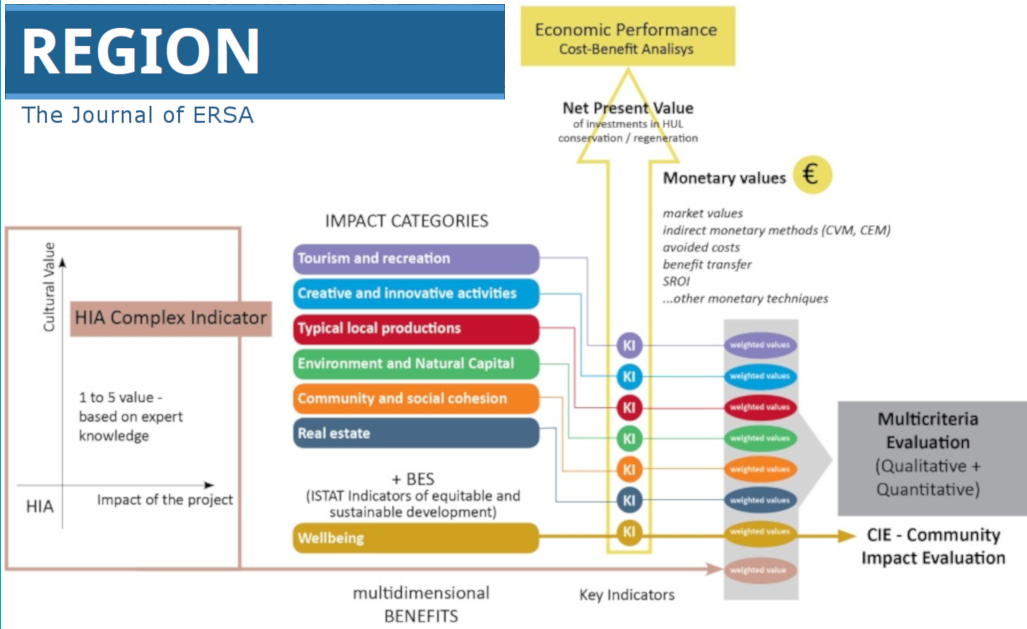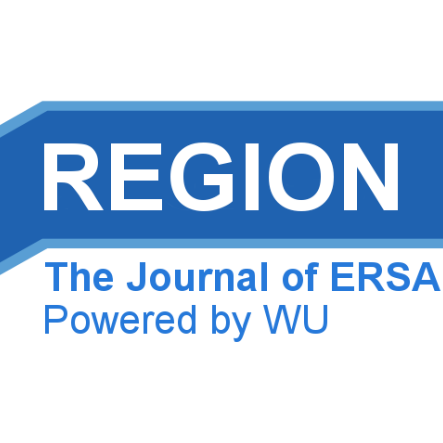Towards an Integrated Evaluation Approach for Cultural Urban Landscape Conservation/Regeneration
DOI:
https://doi.org/10.18335/region.v5i1.160Abstract
The contemporary economic crisis (and also ecological and social crisis) calls for a new model of urban development. The international debate is today focused on the necessity of a new paradigm (Hosagrahar et al., 2016) that will define sustainable development policies and programmes: this new paradigm moves the concept of development towards a more humanistic and ecological point of view.
The international debate around Sustainable Development Goals (SDGs) recently is going to highlight the role of cultural heritage for sustainable development (United Nations, 2015a).
Cultural heritage can play a critical role in the achievement of the above mentioned new humanistic and ecological paradigm of sustainable city.
In this paper some indicators to evaluate cultural urban landscape conservation/regeneration projects are identified, starting from case studies.
The purpose of the analysis of good practices is to support the elaboration of a multidimensional matrix that can produce empirical evidence about impacts of cultural urban landscape conservation/regeneration.
After a particular focus on the relationship between variation of landscape and variation of wellbeing, it will present a methodological proposal to evaluate cultural urban landscape conservation/regeneration projects.

Published
How to Cite
Issue
Section
License
Copyright (c) 2018 FRANCESCA NOCCA

This work is licensed under a Creative Commons Attribution 4.0 International License.
REGION is an open journal, and uses the standard Creative Commons license: Copyright We want authors to retain the maximum control over their work consistent with the first goal. For this reason, authors who publish in REGION will release their articles under the Creative Commons Attribution license. This license allows anyone to copy and distribute the article provided that appropriate attribution is given to REGION and the authors. For details of the rights authors grant users of their work, see the "human-readable summary" of the license, with a link to the full license. (Note that "you" refers to a user, not an author, in the summary.) Upon submission, the authors agree that the following three items are true: 1) The manuscript named above: a) represents valid work and neither it nor any other that I have written with substantially similar content has been published before in any form except as a preprint, b) is not concurrently submitted to another publication, and c) does not infringe anyone’s copyright. The Author(s) holds ERSA, WU, REGION, and the Editors of REGION harmless against all copyright claims. d) I have, or a coauthor has, had sufficient access to the data to verify the manuscript’s scientific integrity. 2) If asked, I will provide or fully cooperate in providing the data on which the manuscript is based so the editors or their assignees can examine it (where possible) 3) For papers with more than one author, I as the submitter have the permission of the coauthors to submit this work, and all authors agree that the corresponding author will be the main correspondent with the editorial office, and review the edited manuscript and proof. If there is only one author, I will be the corresponding author and agree to handle these responsibilities.




